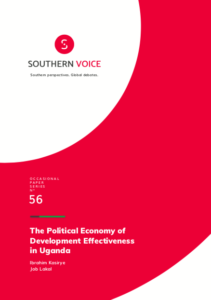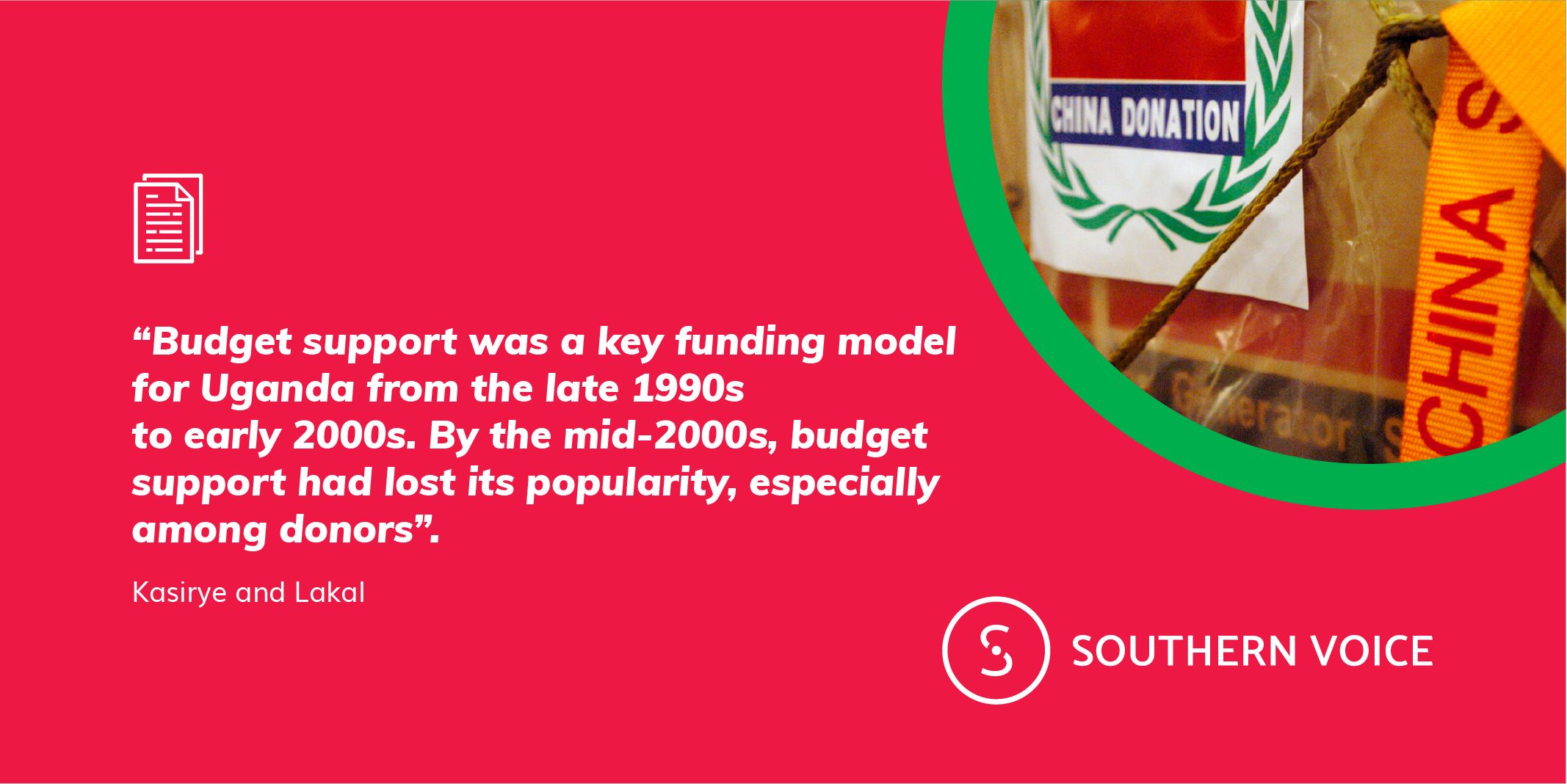In this article, it was highlighted that the effectiveness of external public development finance flows is currently at a turning…
Abstract
 This paper examined the political economy of development effectiveness in Uganda in the context of externally financed development. We conducted extensive desk-based review and analysis of Uganda’s national policy documents and other relevant national documents. We interviewed national-level stakeholders including government officials, Civil Society Organisations and donors with in-country offices. The paper found that the Government of Uganda’s National Development Plan guides the setting of development priorities. Negotiations exist within that process, involving agreements and disagreements especially in areas related to governance and financial accountability. The Government of Uganda has higher leverage in decision making where funding is channelled through budget support. Partnership with non-traditional donors, especially China has given more room for the Government of Uganda to focus on productive infrastructure which is not a priority for traditional donors. But this has contributed to fast-rising sovereign debt. Non-traditional donors negotiate funding informally and less transparently with the Government of Uganda, which is a threat to accountability. This is exacerbated by the State House’ continued interference with the formal structure for negotiating with donors. Off-budget support requires a common coordination framework for all implementers. Further, stronger coordination among donors would enhance their ability to effectively hold the Government of Uganda accountable for donor funds.
This paper examined the political economy of development effectiveness in Uganda in the context of externally financed development. We conducted extensive desk-based review and analysis of Uganda’s national policy documents and other relevant national documents. We interviewed national-level stakeholders including government officials, Civil Society Organisations and donors with in-country offices. The paper found that the Government of Uganda’s National Development Plan guides the setting of development priorities. Negotiations exist within that process, involving agreements and disagreements especially in areas related to governance and financial accountability. The Government of Uganda has higher leverage in decision making where funding is channelled through budget support. Partnership with non-traditional donors, especially China has given more room for the Government of Uganda to focus on productive infrastructure which is not a priority for traditional donors. But this has contributed to fast-rising sovereign debt. Non-traditional donors negotiate funding informally and less transparently with the Government of Uganda, which is a threat to accountability. This is exacerbated by the State House’ continued interference with the formal structure for negotiating with donors. Off-budget support requires a common coordination framework for all implementers. Further, stronger coordination among donors would enhance their ability to effectively hold the Government of Uganda accountable for donor funds.


